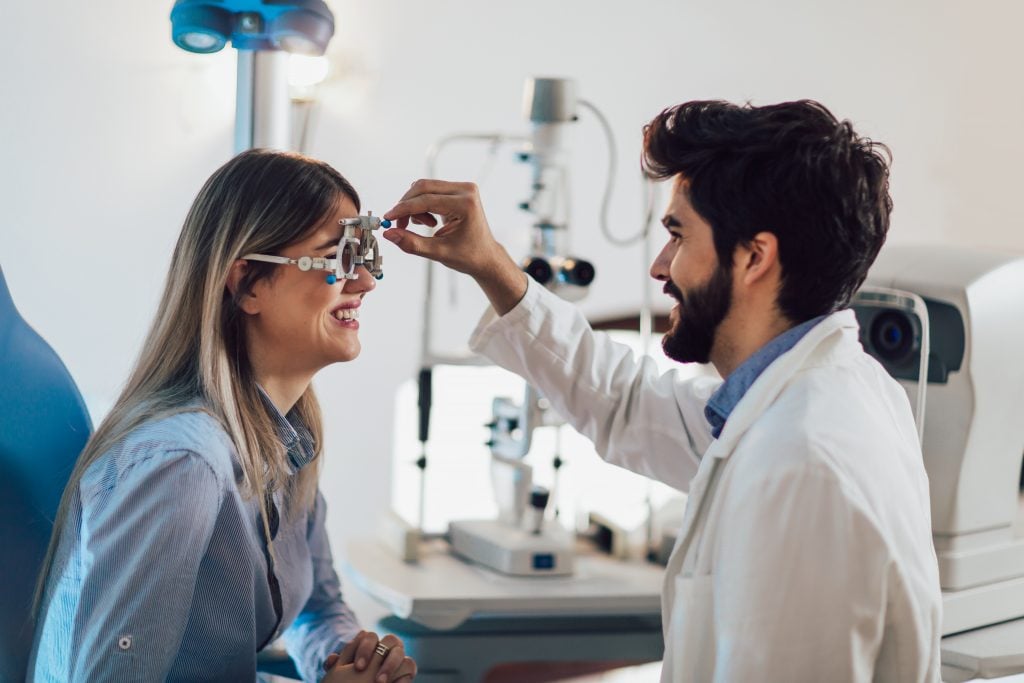
As we pass through Autumn and into Winter, the days start to shorten and the temperature drops. We find ourselves inside more often with the central heating on, taking a break from the wind, rain and frost of the outdoors. Though we may be able to hide our hands and fit beneath layers of woolly gloves and socks, it isn't as easy to protect our eyes during this time. In this blog, we'll give you some tips on looking after your eyes this Autumn and beyond.
Eye Protection -
Wearing glasses will not only help your eyesight but they will also help to protect your eyes from wind and debris. For those of you who don't require prescription glasses, sunglasses can make a great barrier and a layer of protection for your eyes. They will help protect them from debris as well as a low rising and setting sun. This can be particularly dangerous as the sun setting and rising often occurs during the school run or when people are going to or from work. Sunglasses also help to protect against glare from puddles and building or car windows.
Screens and Eye Fatigue -
For those of us that work in front of a screen for long periods, blue-light control coatings are great for reducing eye strain. To help reduce strain and ensure you're looking after your eyes, remember to blink regularly and take breaks from your screen. A good way to remember to give your eyes a rest is to follow the 20-20-20 rule. Simply look at an object 20 feet away for 20 seconds every 20 minutes.

Staring at these screens for long periods of time can cause issues in places other than our eyes. Those with uncorrected vision may find themselves tilting their head in an unnatural position or leaning forward just to see the screen more clearly. This could cause problems with your posture or long-term issues in your neck and back. Ensuring you have the correct prescription and blue light control lenses can help reduce the effect of screen-related eye-strain but it is still important to give your eyes a break.
Lifestyle -

To help maintain healthy eyes, ensure you are well hydrated by drinking water throughout the day. In addition to staying hydrated, ensure you are eating healthily. Foods that are rich with omega 3 and 6 such as fish and walnuts and great for maintaining healthy eyes. Vegetables, especially greens and carrots are also great at improving eye health and overall vision.
Sleep. A good nights sleep is crucial in looking after your eyes and keeping them in tip-top condition. A lack of sleep can lead to you dry, itchy, or bloodshot eyes. Eyes can become more sensitive to light after a poor nights sleep and you may even experience blurred vision. A balanced diet and plenty of sleep are just a couple of the ways we can improve our eye health.
Eye Tests -

The best way to help keep your eyes in tip-top condition is to get your eyes tested regularly. Regular eye tests will keep track of your eyes' health and inform you of any medical issues or history. They will also ensure your prescription is up to date and accurate. Out of date prescription lenses could be more damaging to your eyes than not wearing glasses at all.
The average person, ages between 18-60, should go for an eye test at least once every two years. Those older or 'at risk' should go for more frequent exams to ensure their prescription is up to date and to keep an eye on any medical issues.
Much like any other part of our bodies, it is important to look after our eyes. Maintaining healthy eyes isn't difficult and largely overlaps with a generally healthy lifestyle. A balanced diet, healthy lifestyle and regular eye tests will help keep your eyes in excellent condition.
Looking to pick up your own pair of new glasses or sunglasses? At Spex4less we’re sure to have the perfect frames and lenses for you.
